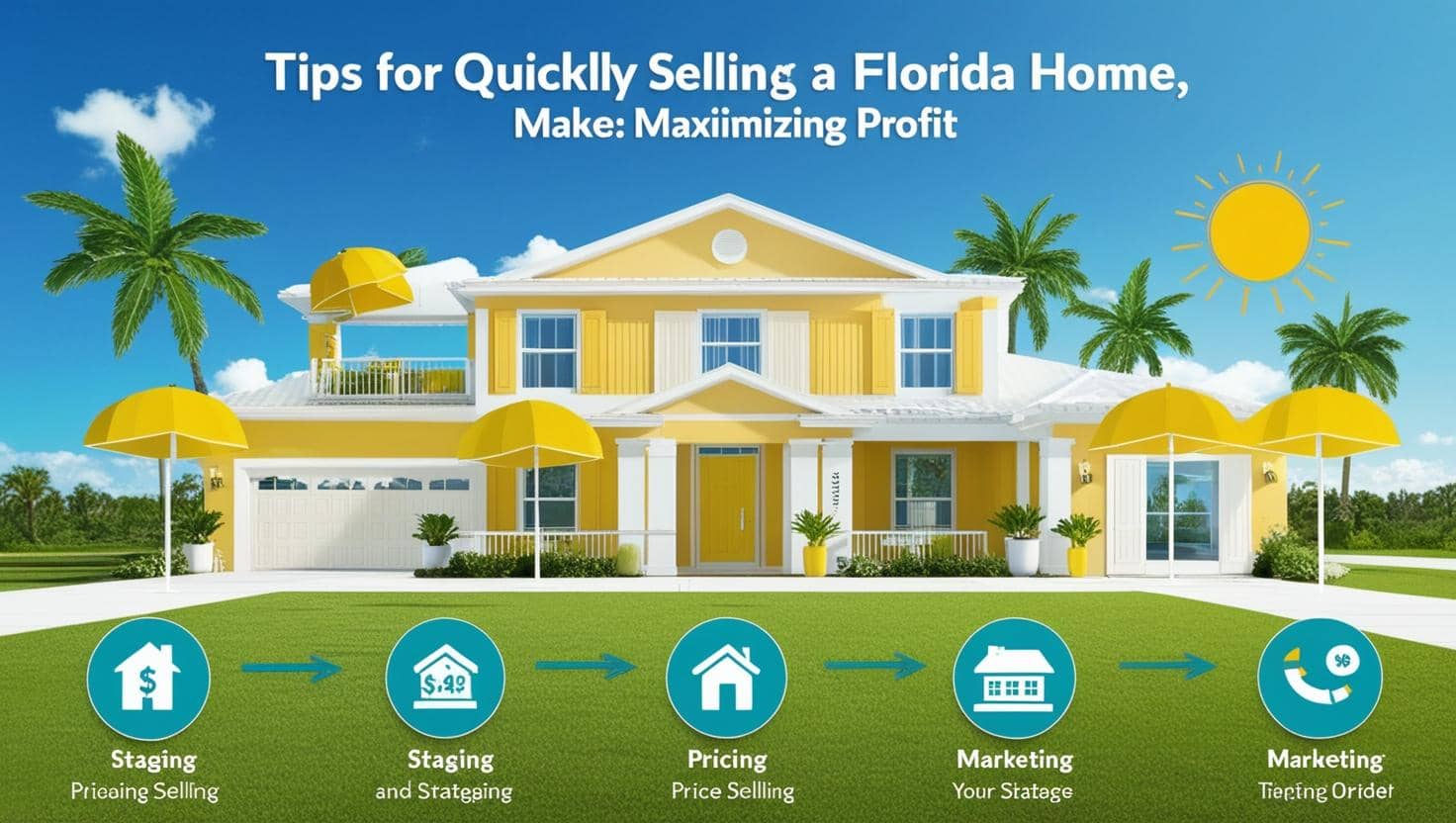Selling a home in Florida can be a thrilling yet overwhelming experience, especially in a fast-moving market like Orlando! 🌴 Whether you’re relocating, upgrading, or cashing in on your investment, one thing is certain: you want to sell quickly and for top dollar.
As an experienced Orlando Realtor, I’ve helped countless homeowners do just that! In this guide, I’ll walk you through the proven strategies to sell your Florida home fast—without sacrificing profit. Let’s dive in! 🚀
1️⃣ Price It Right from the Start 💰
One of the biggest mistakes sellers make? Overpricing their home. ❌ While it’s tempting to aim high, an overpriced home will sit on the market longer, ultimately forcing price cuts.
🔹 The Fix? Work with a local Realtor (like me! 😉) to price your home competitively using recent sales data, market trends, and neighborhood insights.
🔹 Why It Works: Homes priced correctly attract more buyers, leading to quicker offers and potential bidding wars!
🎯 Pro Tip: Homes priced just below a major threshold (e.g., $399,900 instead of $405,000) tend to attract more eyeballs online.
2️⃣ Stage Like a Pro 🛋️✨
Buyers don’t just purchase homes—they buy dreams and lifestyles. 🌟 Staging your home can make a huge difference in how quickly it sells.
Easy & Affordable Staging Tips:
✅ Declutter—Less is more! A clean, minimalist space feels larger.
✅ Depersonalize—Buyers should envision their life in the home, not yours.
✅ Add Fresh Flowers or Greenery—It instantly warms up any space.
✅ Neutral Colors—Repaint bold walls with light, neutral tones for a bright and airy feel.
📸 A Picture Is Worth a Thousand Clicks!
Did you know 95% of buyers search online first? High-quality listing photos are a must! Consider professional real estate photography to showcase your home’s best features.
3️⃣ Make a Killer First Impression 🌅🏡
They say you never get a second chance to make a first impression—and this applies to selling your home too!
🚪 Boost Your Curb Appeal:
🔹 Power wash the driveway & sidewalks.
🔹 Add fresh mulch & colorful flowers 🌺.
🔹 Repaint the front door for a welcoming pop of color.
✨ Inside Matters Too:
🔹 Brighten rooms with natural light—open curtains & clean windows!
🔹 Upgrade outdated fixtures for a modern touch.
🔹 Ensure the home smells fresh—buyers remember bad odors!
🏡 Pro Tip: A well-maintained home signals to buyers that the property has been well cared for—leading to stronger offers!
4️⃣ Market Like a Pro 📢
Even the most beautiful home won’t sell fast without the right marketing strategy!
How a Great Realtor Gets Your Home Seen:
✅ MLS Listing—Your home will appear on Zillow, Realtor.com, and other top sites.
✅ Social Media Ads—Targeted Facebook & Instagram ads bring in serious buyers.
✅ Virtual Tours & Videos 🎥—Buyers love 360-degree video walkthroughs!
✅ Email Blasts & Networking—Realtors tap into their buyer network for off-market opportunities.
🚀 The Goal? Maximum exposure = More offers = Higher sale price!
5️⃣ Timing Is Everything ⏳
Did you know the time of year can impact how fast (and for how much) you sell? 📆
📊 Best Time to Sell in Florida:
✅ Spring & Early Summer—Most buyers are actively looking!
✅ Winter (For Snowbirds ❄️)—Many out-of-state buyers are searching for a sunny retreat.
🔹 Want a Quick Sale? Listing mid-week (like Wednesday or Thursday) often leads to more weekend showings & faster offers.
6️⃣ Be Flexible with Showings 🚪
The more available your home is for showings, the faster it will sell!
🔹 Pro Tip: If possible, temporarily move out or keep the home “show-ready” at all times. Last-minute buyers could be the one!
🔹 Weekend & Evening Showings = More Traffic.
🏡 Remember: Buyers often decide within minutes of walking into a home—so make it easy for them to fall in love with yours!
7️⃣ Work with a Skilled Negotiator 🤝
When offers start rolling in, you need a strong negotiator on your side to ensure you get top dollar without unnecessary contingencies.
🔹 What Your Realtor Does:
✅ Reviews & compares multiple offers 🧐.
✅ Negotiates better terms (higher price, fewer contingencies, faster closing).
✅ Guides you through inspections & appraisals without losing the deal!
💡 Pro Tip: A cash offer may sound tempting, but sometimes a financed offer can net you more in the long run—always weigh your options!
Final Thoughts: Sell Fast, Sell Smart! 🎯
Selling your Florida home quickly without leaving money on the table is absolutely possible—with the right strategy!
💡 Here’s the Winning Formula:
✅ Price it competitively.
✅ Stage it beautifully.
✅ Market it aggressively.
✅ Be flexible & ready to negotiate.
Thinking about selling your Orlando home? Let’s chat! 📞 Whether you need expert pricing advice, staging tips, or a full-service selling strategy, I’m here to help.
📩 Contact me today for a free home valuation and let’s get your home SOLD FAST & for TOP DOLLAR! 🚀💰









